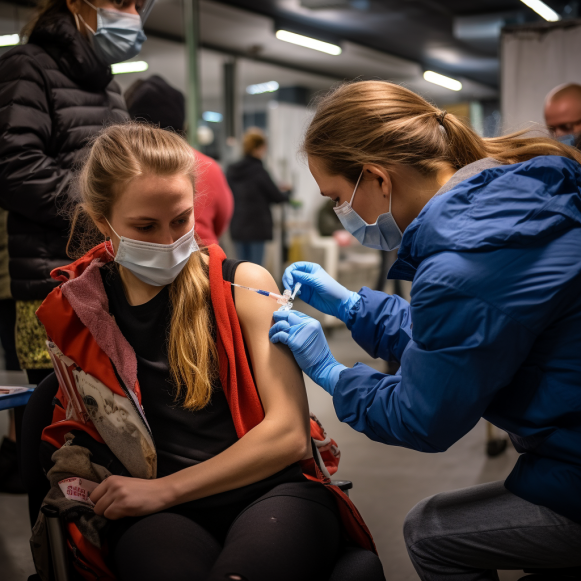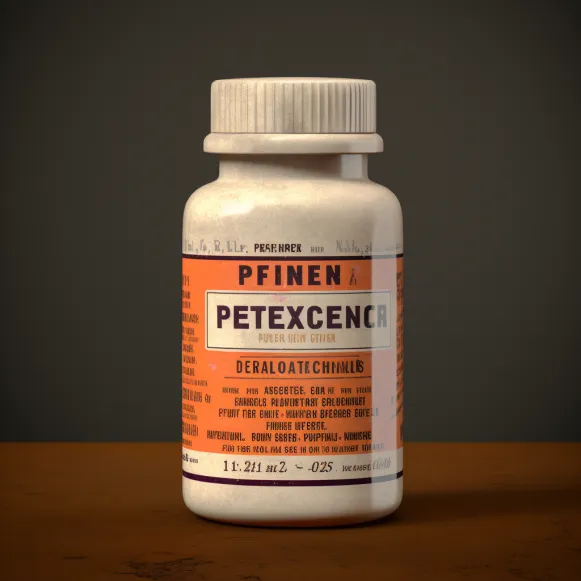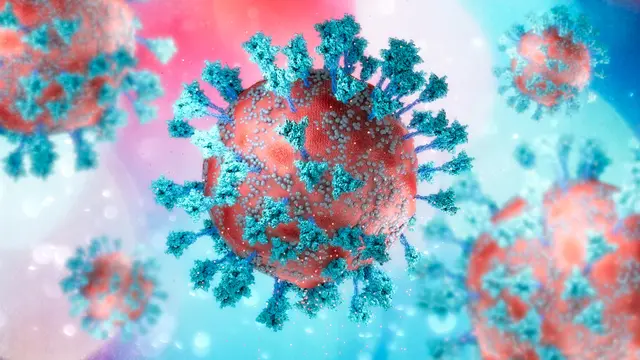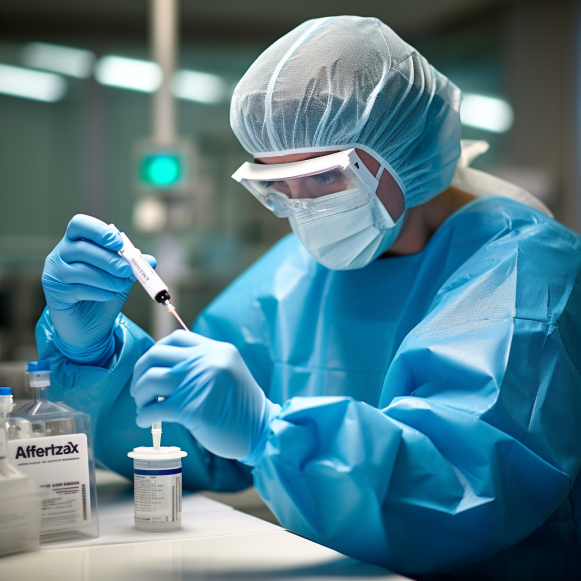COVID-19 Infection and Elevated Risk of Autoimmune and Inflammatory Diseases
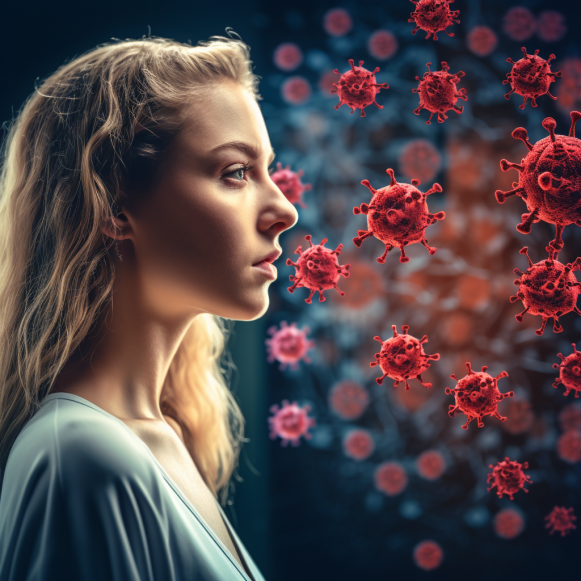
An excessive cytokine storm can lead to prolonged autoimmune responses and trigger specific underlying pathophysiology for disease.
Researchers have found a strong link between SARS-CoV-2 virus infection and cardiovascular and respiratory diseases since the outbreak of COVID-19. COVID-19 has also been linked to an increase in the risk of autoimmune and inflammatory diseases, according to recent research.
Researchers evaluated the incidence and risk of several autoimmune and inflammatory diseases in COVID-19 patients after their recovery in a study published in JAMA Network Open on Oct. 6.
The study collected data from the Korea Disease Control and Prevention Agency COVID-19 National Health Insurance Service between October 8, 2020, and December 31, 2021. This data set included 354,527 people who were infected with the COVID-19 virus and 6,134,940 people who were not (the control group). The average age of both groups was around 52 years, and the mean follow-up times were 119.7 days for the COVID-19 virus group and 121.4 days for the control group.
When compared to the control group, the COVID-19 group had 1.12 times the risk of developing alopecia areata (spot baldness), 1.74 times the risk of developing Crohn’s disease, 1.68 times the risk of developing sarcoidosis (tiny collections of inflammatory cell growth), and 2.76 times the risk of developing antineutrophil cytoplasmic antibody (ANCA)-associated vasculitis.
The researchers believe that an excessive cytokine storm (the immune system’s aggressive response to infection) leads to prolonged autoimmune responses, triggering the specific underlying pathophysiology for each disease.
Within the COVID-19 group, subgroup analysis revealed that age and gender are associated with the risk of various diseases. Individuals over the age of 40 are more likely to develop alopecia areata, alopecia totalis, and ANCA-associated vasculitis, whereas those under the age of 40 are more likely to develop Crohn’s disease, sarcoidosis, adult-onset Still’s disease, and rheumatoid arthritis. Men are also predisposed to alopecia totalis, Crohn’s disease, psoriasis, systemic sclerosis, adult-onset Still’s disease, and ankylosing spondylitis, whereas women are predisposed to alopecia areata and alopecia totalis, ANCA-associated vasculitis, sarcoidosis, Crohn’s disease, and vitiligo.
The severity of the COVID-19 virus infection increases the likelihood of developing rheumatoid arthritis, vasculitis, ulcerative colitis, vitiligo, psoriasis, alopecia totalis, Crohn’s disease, adult-onset Still’s disease, Sjögren’s syndrome, ankylosing spondylitis, and sarcoidosis.
“Autoimmune and autoinflammatory connective tissue disorders may manifest as post-COVID-19 sequelae,” the authors write, implying that long-term management of COVID-19 patients should include monitoring for the emergence of these disorders.
According to the Centers for Disease Control and Prevention, “Long COVID” symptoms include fatigue, headache, chest pain, shortness of breath, or skin rashes that develop or persist after recovering from a COVID-19 virus infection. These symptoms can last weeks, months, or even years.
Autoimmune disease risk increases threefold after infection.
An earlier study published in EClinicalMedicine, a part of The Lancet Discovery Science, found that the risk of developing autoimmune diseases is three times higher six months after being diagnosed with COVID-19 compared to those who were not infected.
For 180 days, the researchers followed 3.81 million people, including over 880,000 confirmed cases and 2.9 million uninfected people. The findings revealed that, when compared to the uninfected control group, confirmed cases had an increased risk of developing the following immune system diseases: rheumatoid arthritis 2.98 times, ankylosing spondylitis 3.21 times, systemic lupus erythematosus 2.99 times, vasculitis and dermatopolymyositis 1.96 times, systemic sclerosis 2.58 times, Sjögren’s syndrome 2.62 times, Furthermore, the confirmed cases had 1.2 times the mortality rate of the control group.
COVID-19 Can Be Beaten With Natural Foods and Exercise
Nutrition and exercise are the two main lifestyle pillars for viral infection prevention. A study published in the journal Nutrients in 2020 found that functional foods (foods with specific nutritional and health benefits) can improve the immune system’s ability to prevent and control pathogenic viral infections, while physical activity can enhance this protective effect.
After moderate exercise, all immune cells in the innate and adaptive immune systems are activated, particularly natural killer (NK) cells, neutrophils, and macrophages. The effect of long-term regular exercise on the immune system may act as a natural vaccine against viral infections like COVID-19. This is critical for high-risk groups, such as those who are overweight or obese, as well as those who have insulin resistance or diabetes.
The author suggests moderate-intensity exercise, such as strength training, balance and control exercises, stretching, or a combination of walking, weightlifting, lunges, and stair climbing. Indoor exercises like sitting and standing, squats, sit-ups, and yoga can also help. Aim for 150 to 200 minutes of aerobic exercise per week, or 400 minutes total.
In terms of nutrition, consuming a diet high in vitamins and minerals can boost immunity, particularly in people who are deficient in these micronutrients.
Functional foods include fruits and vegetables, olive oil, oily fish, nuts, and legumes. Polyphenols, terpenes, alkaloids, flavonoids, sterols, pigments, and unsaturated fatty acids are among the natural health-promoting components found in them. Because of their antioxidant and anti-inflammatory properties, these substances protect the immune system.
Furthermore, polyphenol-rich herbs, particularly fermented teas (green tea, black tea), yerba maté, and coffee, have been shown to benefit metabolic and microvascular activity, cholesterol and fasting blood sugar lowering, anti-inflammation, and antioxidation in high-risk individuals.
Bioactive peptides found in food proteins have been linked to immunological, antimicrobial, gastrointestinal, cardiovascular, neurological, and other hormonal responses. These advantages of functional foods help to protect the body from COVID-19 and other viral infections.



